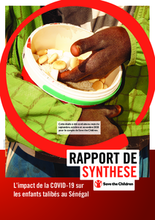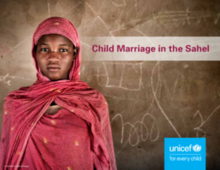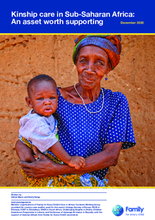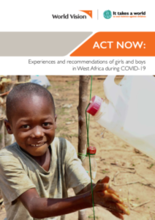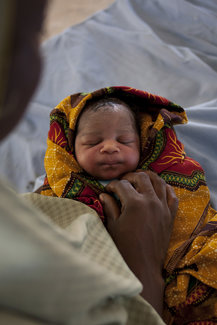

Displaying 81 - 90 of 634
Ce rapport de recherche sur l’impact de la pandémie de COVID-19 sur les enfants travailleurs et en situation de handicap ainsi que sur les enfants talibés, montre que les enfants les plus vulnérables et marginalisés sont les victimes cachées de cette crise au Sénégal.
In line with recent policy discussions on mechanisms to regulate informal kinship care practices, this study aimed to identify how the State could be involved in improving kinship care experience for children.
This brief article from UNICEF describes UNICEF's work with partners in Côte d’Ivoire to assist children on the move during the COVID-19 pandemic, "providing them with psychosocial support through counselling and drama therapy, as well as access to education, shelter, meals, clean water and sanitation facilities. UNICEF also works with partners to help reunite children on the move with their families."
Using survey data collected in 2010 from Ghanaian school children, this study investigates variations in children’s durable goods and private utilities when parents migrate internally or internationally compared to a control group of children who live with their parents.
This article provides an ethnographic and cross-sectional study of the management of orphanages in one Nigerian city.
By drawing on the experiences of parents, advocates, NGOs, and public officials, this side event invited discussion on how, through strengthening families and tools for prevention, societies can reduce the number of children being institutionalized. During the event, a panel of experts from the Republic of Moldova, South Africa, Burkina Faso, Vietnam, and the United States explored their experiences around efforts to empower parents and keep children with disabilities with their families.
By drawing on the experiences of parents, advocates, NGOs, and public officials, this side event will invite discussion on how through strengthening families and tools for prevention, societies can reduce the number of children being institutionalized.
This brochure from UNICEF provides an overview of child marriage in the Sahel, a region spanning the northern portion of sub-Saharan Africa.
This paper argues that kinship care – the care of children by relatives or friends of the family – represents the greatest resource available for meeting the needs of girls and boys who are orphaned or otherwise live apart from their parents.
This report explores children and young people’s views and experiences related to COVID-19 and its indirect impacts. Firstly, it looks at children and young people’s perceptions of how COVID-19 has had an impact on their lives and countries.

